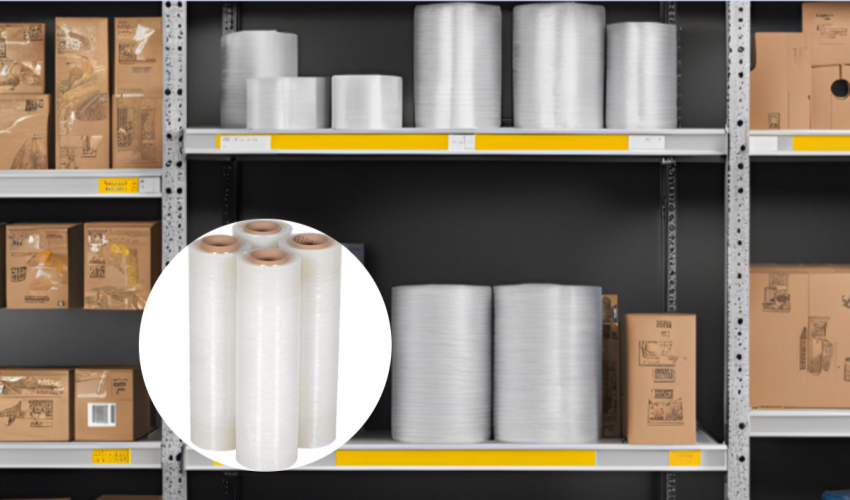
Plastic films are thin, flexible sheets made from various polymers, such as polyethylene, polypropylene, and polyester. These films are widely used across industries, including packaging, agriculture, and construction, for their versatility and cost-effectiveness. In packaging, plastic films provide secure, durable, and lightweight solutions for food, medical products, and electronics. In agriculture, they are used for mulching, greenhouse coverings, and irrigation systems. Additionally, plastic films are vital in the construction industry for moisture barriers and insulation. When sourcing plastic films, choosing reliable plastic film suppliers is crucial. A trustworthy supplier ensures product quality, meets specific requirements, and delivers on time, ultimately contributing to the smooth operation of business processes.
Polycarbonate films are highly durable and transparent, making them ideal for applications that require high strength and clarity. These films are used extensively across a wide range of industries, from automotive to construction. In the automotive sector, polycarbonate films are used for lightweight, shatterproof windows and headlamp covers, while in construction, they serve as transparent roofing or glazing materials due to their excellent impact resistance and UV protection properties. The versatility of polycarbonate film makes it a popular choice for plastic film suppliers offering solutions that combine strength with visual clarity.
Polyethylene films, particularly low-density polyethylene (LDPE) and high-density polyethylene (HDPE), are some of the most commonly used plastic films in the world. These films are widely utilized in agriculture, packaging, and consumer goods. In agriculture, polyethylene films are used for crop protection, mulching, and greenhouse covers, where they help regulate temperature and moisture levels. In packaging, PE films offer excellent moisture resistance, making them perfect for wrapping food, medical products, and other consumer goods. Due to their versatility, polyethylene films are a staple in the product offerings of many stretch wrap plastic film suppliers.
Biaxially oriented polyethylene terephthalate (BOPET) films are known for their high strength, durability, and excellent barrier properties. These films are commonly used in packaging applications, including food packaging, as they provide protection against moisture, gases, and UV rays. The tensile strength of stretch film plays a key role in this, ensuring the films maintain their integrity even under stress. BOPET films also find significant use in the electrical industry for insulation purposes. The superior tensile strength and chemical resistance of BOPET films make them an essential product offered by leading plastic stretch film suppliers, particularly for industries requiring robust and long-lasting packaging solutions.
Specialty films, including shrink films and barrier films, offer specific features that cater to niche applications. Shrink films are commonly used in packaging to tightly seal products, such as bottles, cans, and consumer goods, ensuring they are protected during transportation and storage. Barrier films, on the other hand, are designed to protect sensitive products from environmental factors like moisture, oxygen, and light. These films are frequently used in food packaging and pharmaceutical applications. Plastic film suppliers provide a wide variety of specialty films, tailored to meet the unique demands of industries that require enhanced performance and protection.
Shrink wrap is a highly versatile plastic film used primarily for packaging and protecting products. This film, typically made from materials like polyolefin or PVC, is designed to shrink tightly around an item when heat is applied. The result is a secure, form-fitting protective layer that helps to safeguard products during shipping, storage, and handling. Plastic shrink wrap, known for its durability and flexibility, offers the same high level of protection while enhancing the visual presentation of the item. Shrink wrap films are widely used across industries due to their ability to conform precisely to the shape of the item, offering both protection and visual appeal. Plastic film suppliers offer a variety of shrink wrap options to meet the specific needs of different industries, from retail to industrial applications.
Shrink wrap has a wide range of applications, from retail packaging to industrial uses.
Singapore is home to several leading plastic film suppliers that provide high-quality shrink wrap films for various industries. These suppliers provide not only standard shrink films but also custom solutions, including shrink wraps with enhanced durability, UV protection, and environmental friendliness. Their strategic location and advanced manufacturing capabilities make them ideal partners for businesses seeking reliable shrink wrap packaging solutions.
Plastic trays are an essential component in a variety of industries, particularly in food packaging, logistics, and distribution. In food packaging, plastic trays provide a hygienic, durable, and cost-effective solution for storing and transporting perishable goods. These trays help in organizing and presenting food products while also ensuring that they are securely sealed and protected from contamination. The versatility of plastic trays makes them highly valuable in industries like fresh produce packaging, ready-to-eat meals, and pharmaceutical packaging, where product integrity is paramount. Additionally, in logistics, plastic trays are crucial for streamlining storage and transportation processes, as they are stackable, lightweight, and resistant to wear and tear.
When sourcing plastic trays, working with reliable plastic film suppliers offers several key advantages.
By partnering with well-established plastic film suppliers, businesses can access a wide range of plastic tray options tailored to their specific needs. Whether it’s for food packaging, industrial use, or retail, sourcing from reputable suppliers ensures high-quality products that meet both regulatory requirements and market demands.
Choosing the right plastic film supplier is critical to ensuring the success of your business, as it directly affects the quality, efficiency, and cost of your operations. Here are some key factors to consider when selecting a plastic film supplier:
By considering these factors, you can make an informed decision when choosing the right plastic film supplier to suit your business needs. Reliable suppliers will help streamline your operations, provide high-quality films, and meet your deadlines, all while offering flexibility and cost-effectiveness.
Plastic film is made from a variety of plastic polymers that are processed and transformed into thin, flexible sheets. These materials typically come from petroleum-based sources, such as ethylene, which is derived from natural gas or crude oil. The main types of plastics used to make film include polyethylene (PE), polypropylene (PP), and polyvinyl chloride (PVC). These polymers are produced by chemical processes, where the raw materials are polymerized into long molecular chains. Once produced, the plastic can be processed into film through extrusion, where it is melted and passed through rollers to form thin sheets. In some cases, the film can be stretched (a process called orientation) to increase its strength, clarity, or barrier properties. After production, plastic film is used in a wide variety of applications, from packaging and agricultural films to medical and industrial uses. The process is efficient, but it is also energy-intensive, as it requires heating and shaping the raw materials into the final product.
The manufacturing process of plastic film involves several key stages, each of which plays a critical role in determining the quality and characteristics of the final product. The first step is extrusion, where plastic pellets are heated until they melt, then forced through a die to form a continuous sheet of plastic. Depending on the type of film being produced, additional steps may include casting, where the molten plastic is spread out onto a flat surface or cooled through rollers to solidify it into thin sheets, or blown film extrusion, which involves inflating the molten plastic to create a tube that is then flattened. After extrusion, the film is typically cooled and wound onto rolls for further processing. Stretching may be applied to the film, which involves pulling the film in one or two directions to improve strength, clarity, and barrier properties. Finally, the plastic film may be laminated, printed, or coated with additional layers, depending on its intended application. The result is a versatile material that can be used for a wide range of purposes, from food packaging to industrial applications.
While both plastic films and plastic sheets are made from similar materials, the key difference lies in their thickness and intended use. Plastic film is generally defined as a thin, flexible material, typically less than 0.3mm (300 microns) in thickness. It is used in applications where flexibility, light weight, and stretchability are important. Plastic films are commonly used in packaging, food storage, agriculture, and medical products. On the other hand, plastic sheets are thicker, rigid materials that are generally greater than 0.3mm thick. Sheets are often used in construction, signage, and industrial applications where strength and durability are required. The manufacturing process for both materials can be similar, but film is usually produced by extrusion or blown extrusion, while sheets are often made by processes like casting, calendering, or pressing. Another important distinction is that plastic films are usually more transparent and are designed to be flexible, while plastic sheets are designed to maintain rigidity and offer higher resistance to impact.
A variety of plastics are used to manufacture plastic films, depending on the desired properties for the end product. The most common plastics used for film production include:
Polyethylene (PE): This is the most widely used plastic for film production. It comes in different forms, including low-density polyethylene (LDPE) and high-density polyethylene (HDPE), each offering different characteristics like flexibility, strength, and barrier properties. PE films are commonly used for packaging, grocery bags, and agricultural applications.
Polypropylene (PP): Known for its high clarity and strength, polypropylene is often used for food packaging, medical applications, and specialty films. It has a higher melting point than polyethylene, making it suitable for applications that require heat resistance.
Polyvinyl Chloride (PVC): PVC films are known for their durability and versatility. They are used for a variety of applications, from medical and industrial to packaging. Flexible PVC films are often used for shrink-wrap packaging and other protective films.
Polyester (PET): Polyester films, particularly BOPET (biaxially oriented polyethylene terephthalate), are highly durable, clear, and have excellent barrier properties. These films are commonly used in food packaging, electronic components, and even in the production of labels.
Nylon: Nylon films are known for their excellent strength and resistance to abrasion, making them ideal for industrial applications. They also offer good gas barrier properties, making them useful in packaging sensitive products like food and pharmaceuticals.
Each of these plastics is chosen based on the specific characteristics needed for the application, such as flexibility, strength, barrier properties, or transparency.

My name is James Thompson, and I’m the editor of this website dedicated to Stretch Film, Pallet Wrap, and Stretch Wrap products.
My passion for packaging began when I noticed the challenges companies face in securing their products efficiently for transportation and storage. This inspired me to delve deep into the world of stretch films and pallet wraps, exploring the latest technologies and best practices.
I aim to provide valuable insights, practical tips, and up-to-date industry trends to assist you in making informed decisions. Whether you’re a small business owner or part of a large corporation, my goal is to support you in optimizing your operations and ensuring your products reach their destination safely.
Thank you for visiting, and I look forward to accompanying you on your journey toward better packaging solutions.
Comments are closed